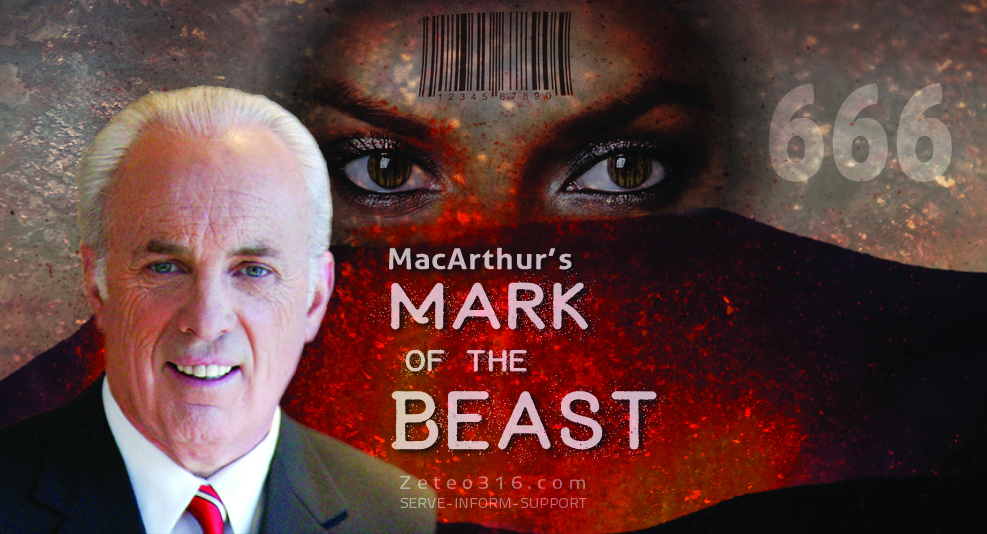Do pretribulationists like MacArthur really take a haphazard view on the Mark of the Beast?
Some time ago John MacArthur’s response to a question about whether someone could accept the Mark of the Beast and repent caused a stir in prophecy circles. He believed one could repent. I wouldn’t have given the same answer. Most pretribulational prophecy buffs strongly disagreed with him.
Predictably, non-pretribbers saw it as confirmation of the dangers of pretribulationism. One individual recently wrote that churches are not preparing their flocks to face the Antichrist. They’re allegedly setting them up to be cast into hell. He contends that people like MacArthur are saying it’s OK to accept the Mark and repent later. Is this an accurate account of what MacArthur intends? Phil Johnson writes:
If someone listens to Pastor MacArthur’s reply and imagines he was saying it’s no great sin to receive the mark of the Beast, listen again; that grossly twists what he actually said. The question is not (as one writer suggests) “How Far Can You Go and Still Be Able to Repent?” The point John MacArthur was making is about the extremes to which God’s grace will reach in order to seek and save a sinner.
MacArthur’s Reformed Five Point Calvinism contributes to the logic of his answer. Since God predestined the elect in eternity past, their salvation is assured. See James White on Eternal Security. So logically, from a Reformed Futuristic Premillennial perspective, either the elect will be kept from taking the Mark to begin with, or repentance must be available afterwards.
Once again, I don’t agree with John MacArthur’s stance. The Book of Revelation warns against taking the Mark. The possibility of repentance is precarious speculation. We pretribbers fully understand that, despite the hand-wringing of our pretrib-critic friends.
That said, ponder these questions: Is there any sin one cannot repent of now? Can an unbeliever who worships Satan today, repent and be saved tomorrow? If the answer is yes, what should we then make of the 70th week? Does the 70th week involve a different dispensation? Most people would reject that premise. But if it doesn’t, then what has changed?
Five Point Calvinist non-pretribbers should have no doctrinal reason to warn against pretribulationism. That some still do indicates doctrinal inconsistency, or some other bias. Others believe we can lose our salvation. This provides justification for them to contend against pretribulationism (while ignoring other alleged non-preparedness systems such as amillennialism).
I’ve asked these questions many times: how does one prepare for tribulation? Does this preparation involve trusting oneself, or Christ alone? Is it sufficient to know that one must face the Antichrist or is there something else we ought to do? I’ve yet to see the training manual. Feel free to e-mail me to compare notes if you have one.
In summary: if we pretribulationists are wrong regarding the timing of the rapture, we won’t confuse the Antichrist for Christ. The distinctions are sharp and clear. Regardless of one’s position on the timing of the rapture, we ought to abide daily in Christ and place our trust in Him only. In this way we will be prepared to endure any future unforeseen circumstances.
For I am persuaded that neither death nor life, nor angels nor principalities nor powers, nor things present nor things to come, nor height nor depth, nor any other created thing, shall be able to separate us from the love of God which is in Christ Jesus our Lord. Rom 8:38-39

